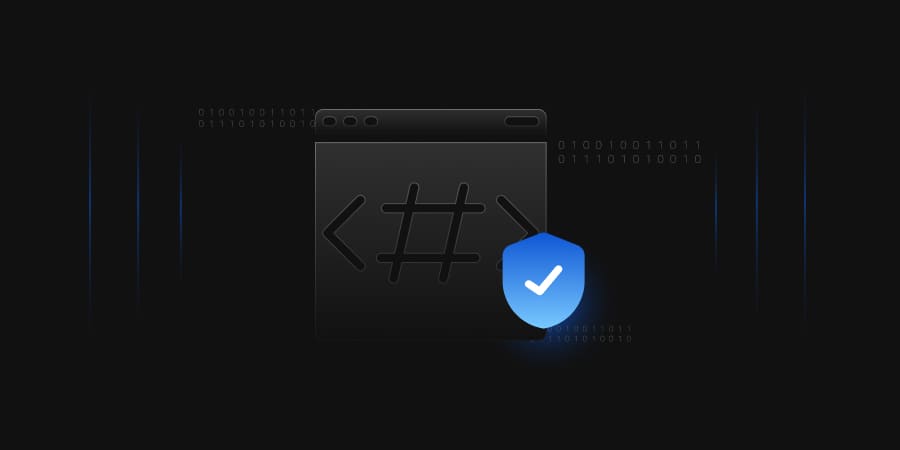In-Depth Analysis of FIPS 205: Stateless Hash-Based Digital Signature Standard


The Federal Information Processing Standards Publication (FIPS) 205 introduces a groundbreaking approach to digital signatures with its Stateless Hash-Based Digital Signature (SLH-DSA) Standard. Our blog presents the framework for digital signatures, leveraging hash-based techniques to enhance both security and efficiency in cryptographic systems.
FIPS 205, or the Stateless Hash-Based Digital Signature Standard, represents a significant evolution in digital signature technology. This standard focuses on using hash-based methods to generate and verify digital signatures without maintaining state information between operations. The stateless design is a key feature that helps address various cryptographic security concerns.
The SLH-DSA framework is designed to operate without the need to maintain internal state information. This stateless approach is crucial for enhancing security because it eliminates vulnerabilities associated with state management. By avoiding state retention, SLH-DSA reduces the risk of attacks that exploit state information.
SLH-DSA employs several fundamental cryptographic functions to ensure the integrity and security of digital signatures:
Central to SLH-DSA are hash functions that process data to produce fixed-size hash values. These hash values are essential for verifying the integrity of data and ensuring that the digital signature is valid and untampered.
PRFs are utilized to generate secure random values that are critical for various cryptographic operations. The use of PRFs strengthens the security of the signature generation process by ensuring that the values used are unpredictable and random.
The FIPS 205 standard incorporates several key enhancements to improve security over previous digital signature standards:
New address types, such as WOTS_PRF and FORS_PRF, have been defined for the WOTS+ and FORS secret key value generation. These additions address vulnerabilities in earlier key generation methods, providing more secure ways to handle secret keys.
The standard replaces SHA-256 with SHA-512 in several functions, including H𝑚𝑠𝑔, PRF𝑚𝑠𝑔, H, and Tℓ, to address identified weaknesses in SHA-256, particularly for higher security categories. SHA-512 offers enhanced security properties, making it suitable for more demanding applications.
To further improve security, FIPS 205 introduces new methods to counteract multi-target long-message second preimage attacks. These strategies help protect against sophisticated attacks that exploit weaknesses in the hashing process.
The standard carefully selects and approves parameter sets to ensure compliance with security requirements:
FIPS 205 specifies the use of only 12 out of 36 parameter sets defined in previous specifications. The focus is on ‘simple’ instances of SHA2 and SHAKE parameter sets, which are deemed to meet current security standards effectively.
FIPS 205 includes several revisions from earlier versions to enhance clarity and functionality:
The updated standard includes domain separation cases for signing both raw messages and message digests. This change accommodates different scenarios in digital signature operations and improves the flexibility of the standard.
Adjustments have been made to the methods for extracting bits from message digests used in key generation. These changes align with reference implementations and address ambiguities in previous specifications.
FIPS 205 is highly relevant for organizations and systems that rely on digital signatures for securing information and communications. Its stateless approach provides significant advantages in security, reducing the risks associated with stateful systems. By implementing SLH-DSA, organizations can enhance the security of their digital transactions and ensure the integrity of their communications.
As quantum computing advances, the need to secure your organization’s data and communications against future threats is more pressing than ever. We offer our post quantum cryptographic advisory services to navigate these challenges effectively. Our services include:
We conduct thorough evaluations of your current cryptographic infrastructure to identify vulnerabilities and prepare for quantum threats. This includes assessing digital certificates, cryptographic keys, and overall crypto-governance.
We develop a customized roadmap for transitioning to post-quantum cryptographic solutions, ensuring your organization’s data remains secure. Our strategies are designed to align with your specific needs and risk tolerance.
We support the seamless integration of quantum-resistant cryptographic solutions into your existing systems. This includes planning, executing pilots, and ensuring compliance with the latest standards.
FIPS 205 represents a major advancement in digital signature standards with its Stateless Hash-Based approach. The incorporation of enhanced cryptographic functions, updated algorithms, and refined parameter sets a new standard for security in digital signatures. By leveraging SLH-DSA, organizations can ensure greater protection for their digital communications and transactions, aligning with modern security requirements and best practices.